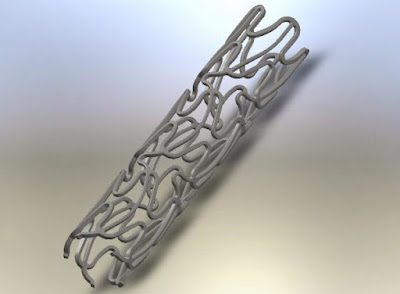Gastrointestinal stents have been developed for palliation of obstructive symptoms in various diseases obstructing the Gastrointestinal (GI) tract. Stents, in clinical practice, are used for gastrointestinal tract tumor palliation (tunneling, luminal recanalization, luminal patency maintenance), GI perforation, or leak sealing (GI fistula sealing), GI bleeding (luminal vessel compression), and GI bypass or anastomosis (GI transluminal drainage). The role of stenting in the management of patients with digestive tract obstruction has expanded in recent years.
Gastrointestinal stents are used to open small bowel, esophagus, colon, and bile ducts when blocked by large, cancerous tissue growth. Stents can be permanently implantable or removable based on the material used. The role of gastrointestinal stents is to reduce blockage of the digestive tract of patients. Moreover, technological advances have improved the performance of the stent and help reduce the risk of stent-induced complications to improve quality of life. Thus, there is an increasing demand for gastrointestinal stents across the globe.
For example, in May 2019, Olympus launched two HANAROSTENT self-expanding metal stents (SEMS) at Digestive Disease Week (DDW) 2019. These new additions to the Olympus EndoTherapy portfolio for advanced procedures include the 510(K) cleared HANAROSTENT LowAx Colonic and Duodenal Uncovered Stents made by M.I. Tech and distributed through Olympus in the United States. A stent is a medical device designed to reconstruct and/or seal any obstruction or leaking lesion.
In gastroenterology, gastrointestinal stents play an important role in the recanalization of GI tumors and postoperative leak sealing. Most individuals who undergo an intestinal bypass procedure experience a long period of relief from their ailments. Stents are safe and effective alternatives to repeated endoscopic procedures or surgery in patients with various gastrointestinal diseases and disorders. Gastrointestinal stents are used to palliate patients with obstructions of the alimentary tract caused by malignancy.
Tags:
Blogs

